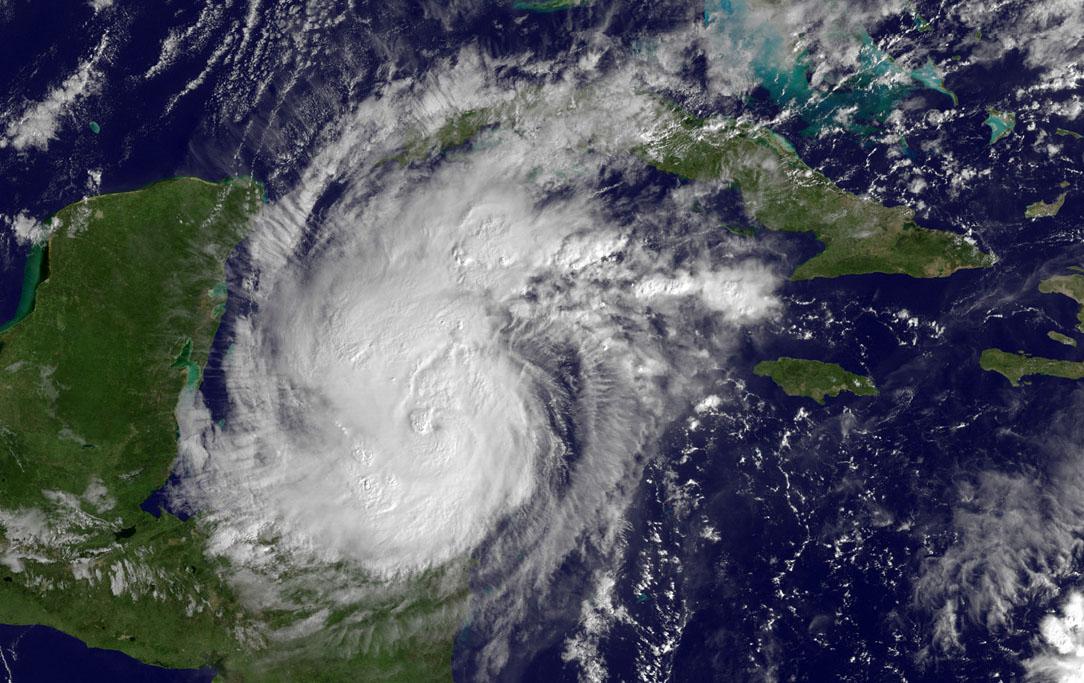2012 Atlantic hurricane season to be near normal, NOAA says
In this satellite handout from National Oceanic and Atmospheric Administration (NOAA), Hurricane Rina gathers strength in the Caribbean Sea. A Hurricane Watch is in effect for the east coast of the Yucatan Peninsula from north of Punta Gruesa to Cancun.
The federal government is predicting a near-normal Atlantic hurricane season in 2012.
Nine to 15 tropical storms are forecast in the initial outlook issued Thursday by the National Oceanic and Atmospheric Administration. Four to eight of those storms may strengthen into hurricanes, and one to three of those could grow into "major" hurricanes of Category 3 or higher, Reuters reported.
More from GlobalPost: Most Americans believe unusual weather due to climate change
The six-month storm season officially begins June 1, but got off to an early start with the formation of Tropical Storm Alberto last Saturday off South Carolina's coast, according to The Associated Press.
Last year marked the sixth consecutive year without a major hurricane making US landfall, according to the AP.
More from GlobalPost: 2011 disasters cost record $380 billion in economic losses
Two current climate factors are expected to limit hurricane development this year, if they persist: strong wind shear, which can tear apart burgeoning hurricanes, and cooler sea-surface temperatures in the far eastern Atlantic, USA Today reported.
"Another potentially competing climate factor would be El Niño, if it develops by late summer to early fall," Gerry Bell, lead seasonal hurricane forecaster at NOAA's Climate Prediction Center, told USA Today.
Earlier this month, two of the biggest private weather forecasting companies, AccuWeather and the Weather Channel, also predicted an average or slightly below-average hurricane season, according to the Washington Post.
Last month, meteorologists at Colorado State University estimated 10 tropical storms, four of which would be hurricanes. Colorado State University meteorologist William Gray was the first scientist to make seasonal hurricane forecasts in the 1980s.
The article you just read is free because dedicated readers and listeners like you chose to support our nonprofit newsroom. Our team works tirelessly to ensure you hear the latest in international, human-centered reporting every weekday. But our work would not be possible without you. We need your help.
Make a gift today to help us reach our $25,000 goal and keep The World going strong. Every gift will get us one step closer.
